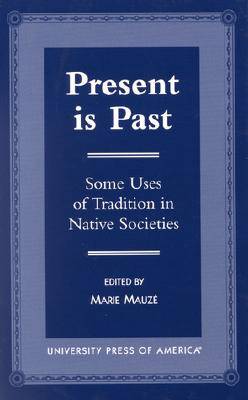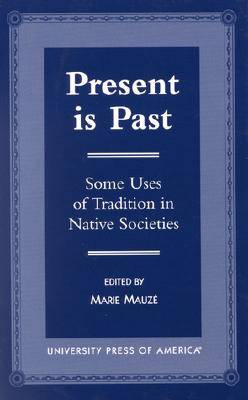
Door een staking bij bpost kan je online bestelling op dit moment iets langer onderweg zijn dan voorzien. Dringend iets nodig? Onze winkels ontvangen jou met open armen!
- Afhalen na 1 uur in een winkel met voorraad
- Gratis thuislevering in België vanaf € 30
- Ruim aanbod met 7 miljoen producten
Door een staking bij bpost kan je online bestelling op dit moment iets langer onderweg zijn dan voorzien. Dringend iets nodig? Onze winkels ontvangen jou met open armen!
- Afhalen na 1 uur in een winkel met voorraad
- Gratis thuislevering in België vanaf € 30
- Ruim aanbod met 7 miljoen producten
Zoeken
€ 104,95
+ 209 punten
Uitvoering
Omschrijving
This book belongs to a long tradition of thought on Native identity. However, in a more or less explicit manner, it intends to break away from other studies in the field. Instead of viewing identity in reference to a phantasmagorical past, it aims at setting up the framework within which identity can express and project itself into the future. The collection of essays shows that this future can evolve equally between the continuity of Natives' identity and their ability to innovate and to invent. In that respect, tradition appears as a technique of adjustment and adaptation to new conditions. The book explores the notion of tradition by both anthropologists and native peoples. The first part consists of three theoretical texts that discuss a number of general issues: the mechanisms of retroactive legitimation of tradition, the cognitive aspects of cultural transmission and the relationships between tradition and history. The second part is composed of case studies dealing for the most part with Native North Americans. One essay adds a comparative dimension being dedicated to the Maoris of New Zealand. Several contributions deal with aspects of expressive culture, native art and ceremonialism. In all these cases, identities that are being constructed have a twofold nature: one that is specific to the cultural groups concerned; the other that distinguishes these groups from the encompassing Euro-American world.
Specificaties
Betrokkenen
- Auteur(s):
- Uitgeverij:
Inhoud
- Aantal bladzijden:
- 250
- Taal:
- Engels
Eigenschappen
- Productcode (EAN):
- 9780761806844
- Verschijningsdatum:
- 4/12/1997
- Uitvoering:
- Hardcover
- Formaat:
- Genaaid
- Afmetingen:
- 145 mm x 222 mm
- Gewicht:
- 439 g

Alleen bij Standaard Boekhandel
+ 209 punten op je klantenkaart van Standaard Boekhandel
Beoordelingen
We publiceren alleen reviews die voldoen aan de voorwaarden voor reviews. Bekijk onze voorwaarden voor reviews.











